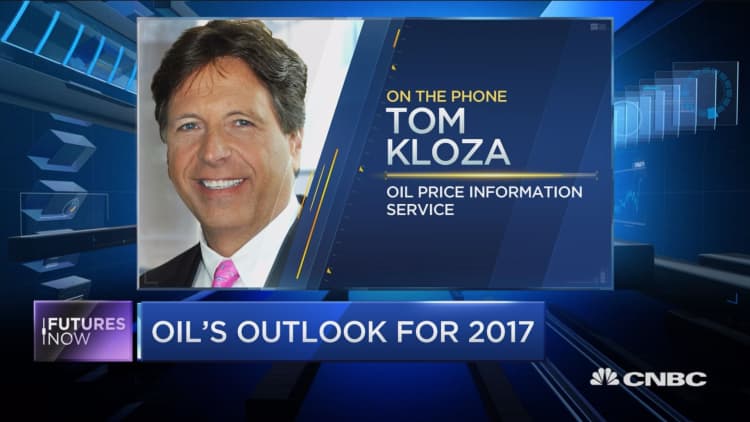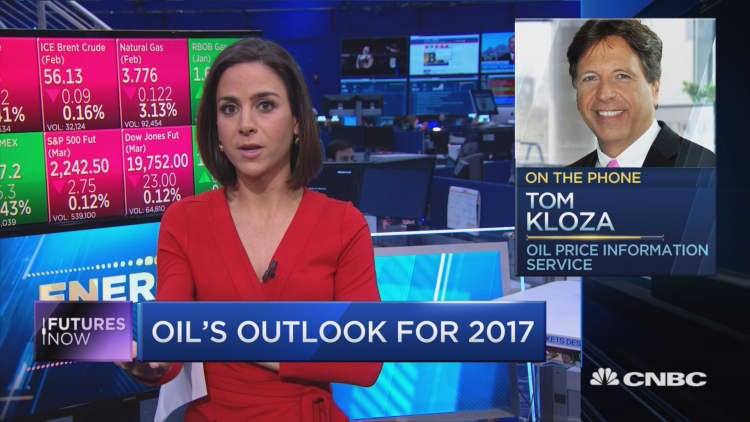


The spectacular oil run of 2016 doesn't have much left in the tank, says one oil analyst who sees oil's supply troubles carrying into the New Year.
Crude saw its best year since 2009, surging almost 45 percent and driving energy to become the year's best-performing sector. The good news has investors and oil companies hoping for another big rally in 2017, especially in light of OPEC and non-OPEC agreements among countries to cut oil production, an attempt to solve global oversupply.
The OPEC meeting in late November caused oil to jump more than 12 percent in just one week, and the commodity rode the OPEC news momentum to hit new highs in December. Yet according to Tom Kloza, global head of energy analysis at the Oil Price Information Service, the same agreement that brought so much joy could also be oil's undoing.
"I do think we'll see [demand exceed supply] in 2017, but I think it's going to be front-end loaded," said Kloza to CNBC's "Futures Now" last week.
Kloza believes that oil could run back to its high of $62.83, which it saw in May 2015, but any higher is doubtful. This means that oil could still surge an impressive 23 percent or so, however that may be the limit to its run up in 2017.
"We'll see some compliance with the OPEC quotas and the non-OPEC agreement, but it will fade into the second quarter and it may not be there at all in the second half of 2017," he added.
In other words, the worst case scenario of OPEC and non-OPEC countries putting aside their production cut agreements could play out. But global non-compliance aside, Kloza also believes that domestic factors could also exacerbate oil's supply glut.
"As you see prices go up above $55 a barrel in the forward markets, you will unleash various beasts in West Texas, North Dakota and even Oklahoma called shale," said Kloza, referring to the vast shale fields powering the U.S. energy production boom.
"That will be the great determinant, or the factor, that keeps oil prices at bay," the analyst added.


